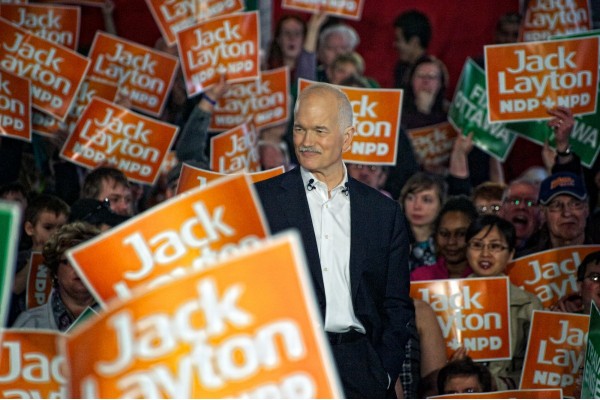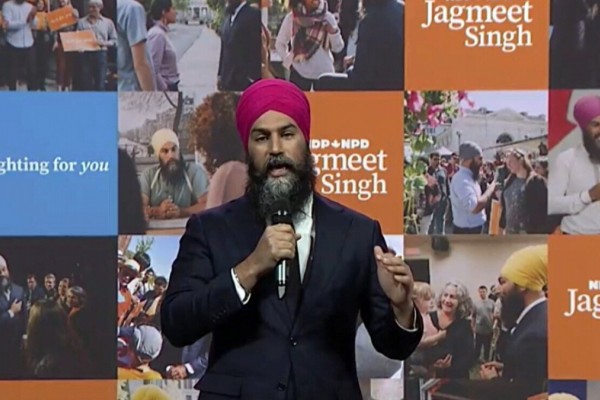Resisting sectarianism, growing the left
We need to build emancipatory movements that can win without destroying the people involved

Today, in a time of overlapping crises and fast-paced social media cultures, sectarianism has taken on new and destructive forms, writes Chris Dixon. Photo by Karl Monaghan/Flickr.
Sectarianism is one of the most persistently demoralizing features of left political cultures. It usually involves a group of people believing they have a monopoly on the truth and, based on this certainty, they sideline, smear, or sabotage others on the left who are not part of their political tendency or organization. Looking across left history, it is no exaggeration to say that this kind of conduct has been tremendously destructive, occasionally leading to physical conflicts, often undermining organizing efforts, and almost always weakening movements.
Today, in a time of overlapping crises and fast-paced social media cultures, sectarianism has taken on new and destructive forms. But at least one thing has remained consistent: a lot of people committed to social justice spend a lot of time attempting to argue definitively that particular left political tendencies, ideas, or initiatives are bad. We regularly put energy—in conversations and increasingly online—into tearing down the efforts of others who share many of our aims but who we see as wrong-headed. And we especially tend to do this during periods when we are experiencing significant collective defeats.
Many of us, as activists and organizers, are exhausted from cycling through teardowns and hungry for something more constructive. This is something I’ve heard consistently for years. And I think it’s a major reason for the immense influence of the book Emergent Strategy by facilitator and writer adrienne maree brown. For me, the standout section of brown’s book is “A Protocol for Haters.” In this section, she urges us to turn away from what she calls “critique mode” habits and, instead, to cultivate a core intention: “I invest my energy in what I want to see grow.”
The approach brown offers enables us to reflect more deeply on our motivations and aims. Are we critical of what other people are doing? Is this a disagreement or a concern about real harm? If it’s a disagreement, rather than trying to convince everyone of our critique, why not collaborate with some others to build something we believe will be more effective, lively, and durable? How about directing our activity toward what we want to thrive and encouraging others to do the same?
To be clear, this doesn’t mean agreeing with everything everyone else is doing or saying, or overlooking real limitations in political initiatives. It certainly doesn’t mean setting aside our core principles and critical perspectives. If we’re going to transform the world, we have to think carefully together about our activities and directly contend with the conflicts, harms, and tensions that we inevitably encounter. On the left as in life more generally, trying to ignore problems almost always leads to bigger ones.
But brown helpfully identifies the danger of devoting the bulk of our precious energy to criticizing efforts in which we’re not directly involved. As she notes, “Pointing out the flaws of something still requires pointing at it, drawing attention to it, and ultimately growing it.” In other words, focusing a lot of critical energy on something can serve to lift up precisely what we want to diminish. It can also be an enormous drain on time and resources that we could otherwise direct toward more constructive uses.
Taking a longer view can be illuminating here. “Over the years,” brown observes, “I have found that when a group isn’t serving the people, it doesn’t actually last that long, and it rarely needs a takedown—things just sunset, disappear, fade away, absorb into formations that are more effective.” In large part, this has been my experience, too.
There are exceptions, of course. Sometimes activist circles harbour abusive people and shield them from consequences. Well-resourced NGOs and political parties regularly constrain insurgent movements. Periodically, radical political tendencies lay singular claim to “militancy” and caustically attack everyone who doesn’t meet their revolutionary standards. Occasionally groups develop into destructive cults. Troubling initiatives do persist at times.
We can take proactive steps to reduce the likelihood and damage of these kinds of circumstances. In our groups, we can develop infrastructure to prevent and respond to interpersonal harms, we can build bottom-up processes of decision-making and accountability, and we can make explicit plans for resisting state infiltration and disruption.
Still, in some situations, focused critical attention may well be the best—or only—contribution to make. Even then, though, we can direct our activity toward what we want to see grow by holding fast to principled, constructive critique. This means criticizing the strongest versions of ideas and initiatives instead of relying on simplified caricatures and personal attacks. It means bringing genuine curiosity toward why people think what they think and do what they do, attempting to understand underlying hopes, fears, and other motivations.
Rather than scoring political points, fortifying subcultural territory, or elevating organizations, we should strive to build emancipatory movements that can win without destroying the people involved.
Ultimately, it is a positive sign when the left is flourishing enough to have diverse and differentiated politics and formations—even as this so often leads to more tension, debate, and conflict. To understand this as a barometer of health for the left is to take what activist-scholar Jen Gobby usefully calls, in her book More Powerful Together, a “movement ecosystem perspective.”
This perspective illuminates the dynamic interplay among the full range of efforts (some in conscious coordination, some in active disagreement) that make up effective movements. It can, writes Gobby, “help nurture a humility that allows us to see that each of our favoured approaches to change is necessary but not sufficient.”
With this kind of humility, let’s strive to make conscious decisions about where and how we focus our efforts. Let’s be thoughtful about our critical attention. Let’s see what we can grow.
Chris Dixon is a long-time activist, writer, and educator. Originally from Alaska, he lives in Ottawa on unceded Algonquin territory, where he is a member of the Punch Up Collective. Find him online at writingwithmovements.com.










